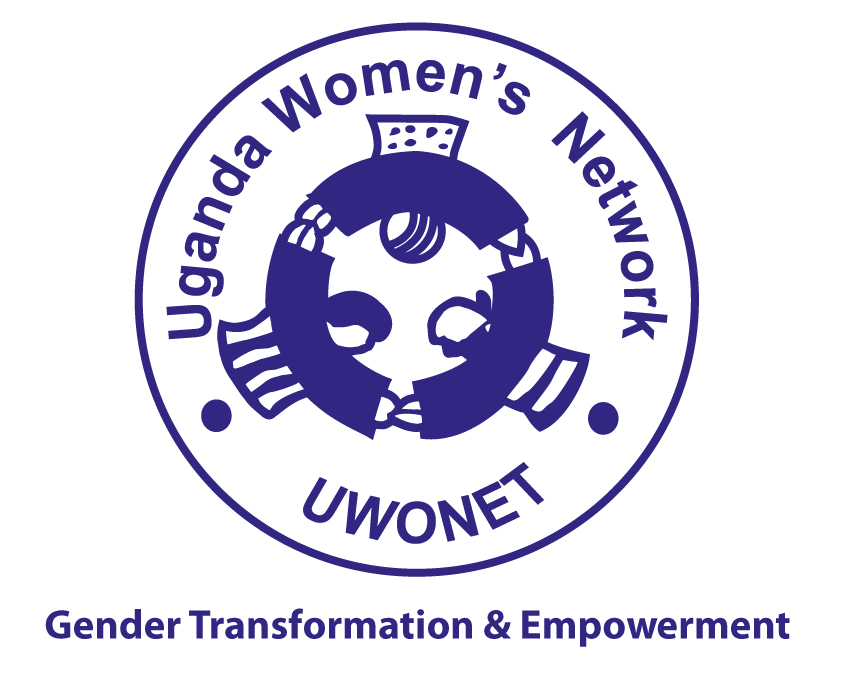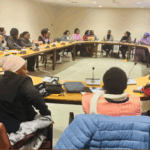The Contribution of Uganda Women’s Network (UWONET) to the Generating Growth Opportunities and Productivity for Women Enterprises (GROW) Project
The GROW Project is a Government of Uganda, World Bank supported project that aims at reducing gender inequality across the lifecycle and promoting women’s economic empowerment, leadership and participation in decision making through investment in entrepreneurship programs and business centres. The project is being implemented by the Ministry of Gender, Labour and Social Development (MGLSD) in collaboration with the Private Sector Foundation Uganda (PSFU) as an implementing entity.
The GROW Project Development Objective (PDO) aims to increase access to entrepreneurial services that enable female entrepreneurs to grow their enterprises in targeted locations, including in host and refugee districts throughs:
Component 1 (Women Empowerment and Enterprise Development Services): Women platforms, community mobilization and mindset change; Business Development and Training (Core Course); Trade/sector specific training and Work placement program.
Component 2 (Access to Finance for Women Entrepreneurs): Business Expansion Grants (Competition); Entrepreneur Performance Grants and Line of Credit and sustainable loan products and processes.
Component 3 (Infrastructure and Facilities): Service and Production facilities and Gender inclusive workplace infrastructure.
Women’s Economic Empowerment (WEE) is profoundly impeded or supported by deeply rooted socio-cultural norms, practices and attitudes determining their access to and control of resources, decision-making, and business opportunities. Socio-cultural norms are implicit rules and expectations that shape and influence the behaviour of individuals and groups. They reflect shared beliefs about how people should act and serve as powerful forces that can either encourage or discourage certain attitudes and behaviours.
Conformity to social norms, attitudes and practices attracts rewards or positive reinforcement such as social status and acceptance in the group. Deviation from societal expectations normally attracts disapproval, shaming and sanctions. In this way, social norms, attitudes and practices act as informal social laws to regulate behaviour within a given social group . In Uganda’s context norms include culture, customs, traditions and practices most of which are typically unwritten, yet they inform beliefs, behaviour and attitudes towards women and girls.
In the context of Women’s Economic Empowerment (WEE), socio-cultural norms, attitudes, and practices often place economic resources in the hands of men. These deeply entrenched norms, shaped by Uganda’s patriarchal system, prioritize males over females. As a result, negative biases and norms contribute to economic violence against women.
Common manifestations of negative socio-cultural norms, attitudes, and practices include men’s dominance over household financial decisions, with women often relinquishing their earnings. Women are generally excluded from land ownership, especially under customary land tenure systems, which assume they will access land through marriage rather than ownership. There is an expectation that women should remain within the domestic sphere, often leading them to leave paid employment after marriage. Women are also expected to defer to their husbands’ financial and other decisions, with any objections seen as disobedience. Boys are considered more valuable than girls, exposing daughters to economic violence through denial of education, inheritance, and financial resources. Additionally, women are often excluded from financial decision-making due to perceptions of their inferiority or lack of maturity in handling money. Addressing these socio-cultural norms, practices and attitudes requires targeted interventions to challenge harmful norms and create a more inclusive economic environment for women.
To enhance WEE, UWONET in partnership with the MGSLD will facilitate the shifting and transformation of social norms, attitudes and practices among women entrepreneurs under the Women Entrepreneurs’ Platforms (WEPs) to enhance growth and productivity in the Central and Northern Regions of Uganda. While GROW overall focuses on increasing access to entrepreneurial services that enable female entrepreneurs to grow their enterprises in targeted locations, including in host and refugee districts under three components, UWONET’s work will fall entirely under component one which in this case will focus on Women platforms, community mobilization and mindset change.
This 18-months initiative will be implemented in the Central Region and Northern Region, covering 28 and 41 respectively. The Central Region districts include; Kyotera, Rakai, Lyantonde, Kalangala, Sembabule, Lwengo, Bukomansimbi, Kalungu, Gomba, Butambala, Masaka, Masaka City, Nakasongora, Nakaseke, Mubende, Kasanda, Mityana, Luwero, Mpigi, Kayunga, Buikwe, Buvuma, Mukono, Kampala City, Kiboga, Kyankwanzi, Kampala (KCCA), and Wakiso.
The Northern region districts of implementation include; Karamoja, with local governments such as Amudat, Moroto, Napak, Nabilatuk, Nakapiripirit, Karenga, Kaboong, Kotido, and Abim. In Lango, the local governments will include Apac, Kole, Lira, Lira City, Kwania, Amolatar, Dokolo, Alebtong, Otuke, and Oyam. For Acholi, the districts involved will be Omoro, Amuru, Nwoya, Kitgum, Lamwo, Agago, Pader, Gulu, and Gulu City. In the West Nile region, local governments will include Arua, Arua City, Adjumani, Moyo, Obongi, Yumbe, Koboko, Maracha, Terego, Madi-Okollo, Zombo, Nebbi, and Packwach.
UWONET will utilize a Human Rights-Based Approach (HRBA), the District Women’s Rights Network Approach, and targeted advocacy to drive its efforts. Key activities will include a rapid assessment of the social norms, attitudes, and practices affecting women’s enterprise growth in the GROW project areas. This will inform targeted interventions. A training manual for women entrepreneurs will be developed and printed, alongside conducting a Training of Trainers (TOT) for Women Entrepreneur Platforms (WEPs) to empower trainers on GBV, women’s rights, and economic participation. Training for women entrepreneurs will be held to raise awareness on GBV, negative social norms, and women’s rights.
A male involvement strategy will be developed to engage men in challenging harmful social norms, with Male Action Groups (MAGs) established and trained to advocate for gender equality. UWONET will also facilitate couple sessions which will serve as a pilot, designed to challenge and transform socio-cultural norms, practices, and attitudes of men towards Women’s Economic Empowerment (WEE) especially those that limit women’s access, ownership and control of economic resources. By fostering a shared understanding between couples, the initiative seeks to shift attitudes and promote more equitable resource distribution within households. If successful, this model will be replicated, contributing to the broader goal of empowering women and creating lasting change in the community. The capacities of District Women Rights Networks (DWRNs) will be strengthened to support local advocacy and coordination. Radio talk shows will be conducted to raise awareness about women’s economic empowerment, while regular monitoring, review, and coordination meetings will track progress and share best practices. A video documentary will showcase successful social norm change practices, and an endline assessment will evaluate the project’s impact. The project will conclude with a meeting to share findings and discuss sustainability strategies.
In conclusion, the GROW Project marks a significant step towards empowering women entrepreneurs in Uganda by addressing the socio-cultural norms, practices, and attitudes that either hinder or promote their economic potential. Through strategic interventions and collaborative efforts, UWONET seeks to create lasting change, fostering an inclusive and equitable environment where women can thrive both economically and socially. This initiative paves the way for a future in which women’s empowerment is at the heart of Uganda’s development.
Tags: Rita Hope Aciro Lakor, Uganda Women's Network, UWONET




